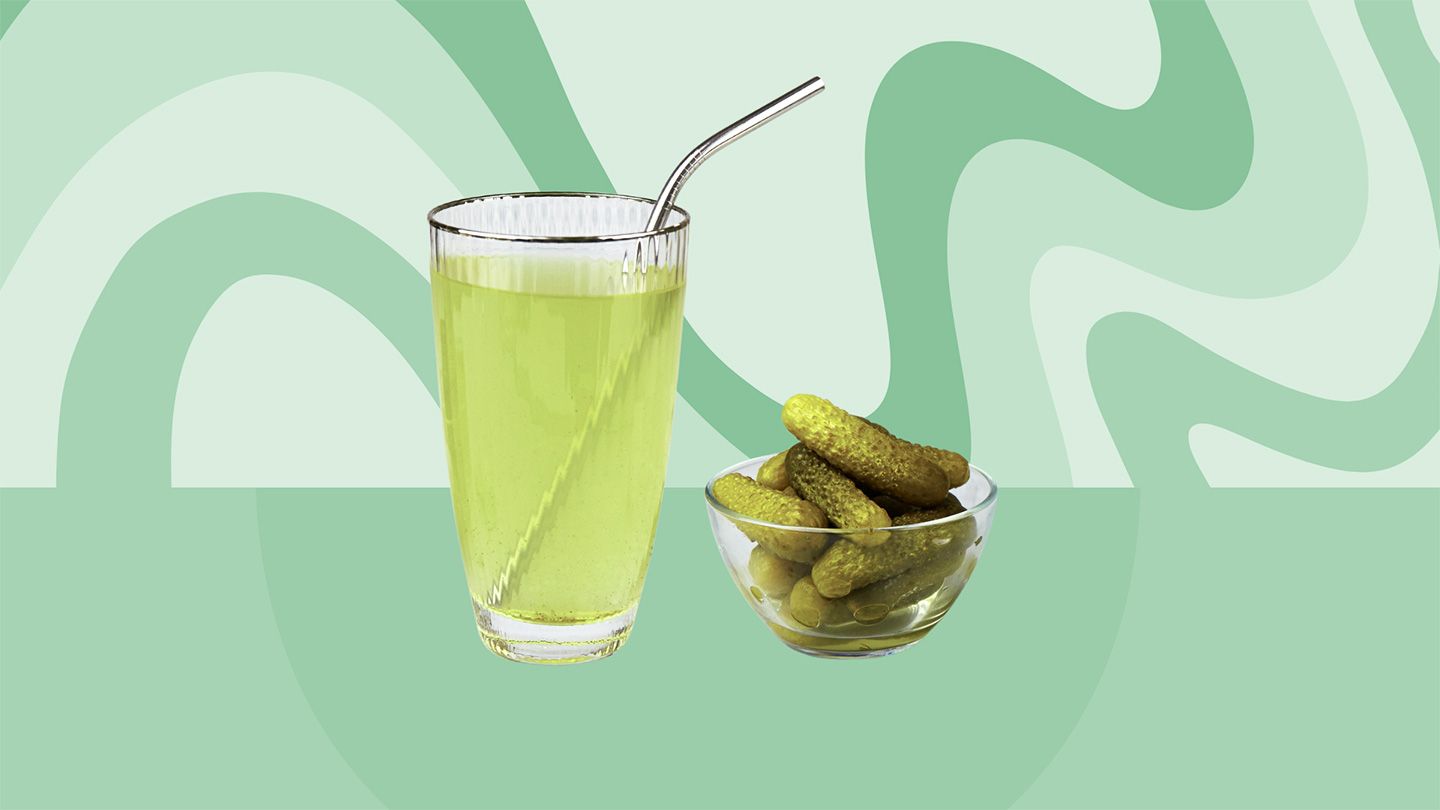Research suggests there may be perks to sipping this salty beverage. Here are a few.
1. Pickle Juice May Aid in Exercise Performance
“Some experts believe pickle juice may help endurance athletes who need extra sodium without added sugar during exercise,” says EA Stewart, RDN, a registered dietitian-nutritionist and the founder of Spicy RD Nutrition in San Diego.
On the other hand, research hasn’t found that pickle juice is particularly effective in improving exercise performance.
Pickle Juice May Ease Muscle Cramps
Pickle juice may reduce muscle cramping (a sudden tightening of a muscle). This effect is often credited to the juice’s sodium content, since sodium is an electrolyte. But there seems to be more going on here. Pickle juice also contains acetic acid, which may stimulate a receptor in the throat that triggers nerves to “release” cramps, per a study.
Not all research agrees with this finding. One review concluded that both pickle juice and water can be effective for relieving exercise-induced muscle cramps.
2. Pickle Juice May Contain Antioxidants
That said, less is known about the antioxidant content in the brine (the liquid in the pickle jar) itself, and it’s not something you want to rely on as a concentrated source of antioxidants, says Kaytee Hadley, RDN, a registered dietitian-nutritionist and the founder of Holistic Health and Wellness in Richmond, Virginia. Instead, focus on adding plant foods like whole pickles to your diet.
3. Pickle Juice May Stabilize Blood Sugar
And, just because pickle juice contains vinegar doesn’t mean it’s useful in managing blood sugar, says Stewart. Some research suggests it may reduce post-meal blood sugar spikes, but this benefit hasn’t been replicated in large-scale studies.
Another caveat: Diabetes is associated with an increased risk of high blood pressure (hypertension). So the high sodium content of pickle juice may be a problem for people with diabetes, Stewart adds.
4. Pickle Juice May Support Gut Health
But not all pickles are made through fermentation; many are pickled in vinegar. Using vinegar kills all types of bacteria, including “good” bacteria that preserve food. So, these pickles don’t provide probiotics in the juice, says Hadley.
To find a fermented pickle, visit the refrigerated section of the grocery store. Look for unpasteurized fermented pickles, which may contain the words “live cultures” or “probiotic” on the label.
Note that, while research indicates that fermented pickles provide probiotics, it’s unclear how much is retained in the liquid itself, says Abigail Hueber, RD, a functional dietitian and the owner of Above Health Nutrition in Boston.
Read the full article here




